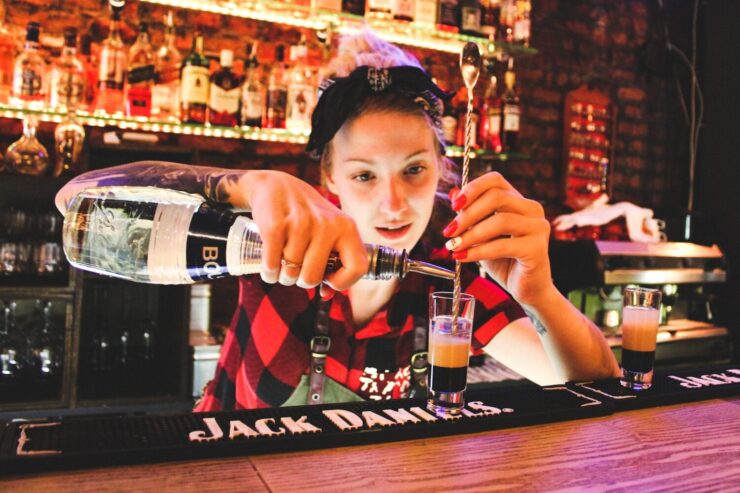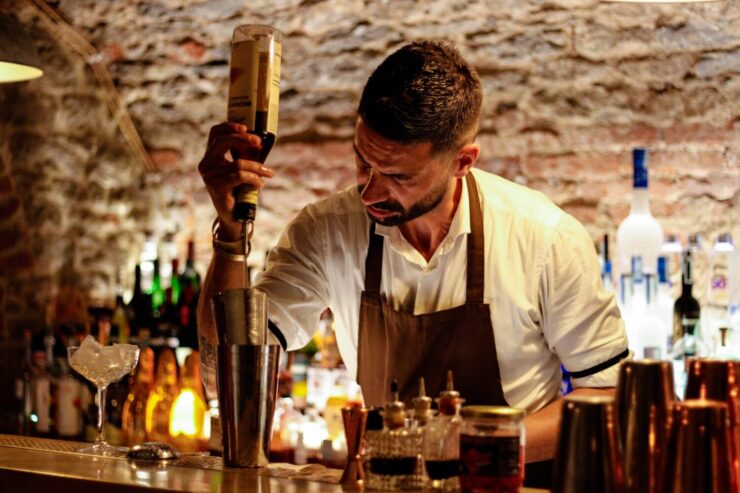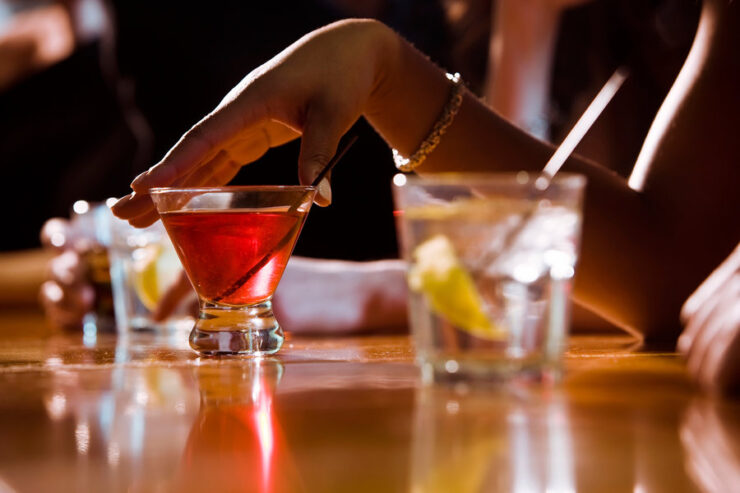Responsible beverage service (RBS) plays a vital role in the hospitality industry, ensuring the safe and responsible consumption of alcoholic beverages. Beverage serving professionals are at the forefront of implementing RBS strategies and promoting responsible alcohol service. In this comprehensive blog post, we will delve into the importance of case studies and practical training for beverage serving professionals. By exploring real-world scenarios and practical examples, professionals can enhance their decision-making skills, situational awareness, and ability to handle challenging situations. This blog post serves as an informative and educational resource for all professionals in the field, providing valuable insights and actionable strategies to elevate their RBS practices.
Understanding Responsible Beverage Service (RBS)

Responsible beverage service encompasses a set of practices and strategies aimed at ensuring the safe and responsible consumption of alcohol. It involves monitoring customers’ alcohol intake, recognizing signs of intoxication, preventing underage sales, and effectively managing challenging situations. Beverage serving professionals play a crucial role in implementing RBS, as they are responsible for upholding the welfare and safety of both customers and the general public. By providing excellent customer service while adhering to responsible alcohol service guidelines, professionals can create a positive and secure environment.
Benefits of Case Studies in RBS Training
Case studies serve as valuable tools in RBS training programs, offering real-world scenarios and practical examples for beverage serving professionals. They provide a platform for professionals to analyze complex situations, make informed decisions, and understand the consequences of their actions. By examining case studies, professionals can develop better judgment, improve their ability to assess risk, and enhance their situational awareness. Additionally, case studies promote critical thinking and problem-solving skills, enabling professionals to handle challenging situations with confidence and responsibility. To fully explore the benefits of the entire program you should cooperate with professionals such as rbstraining.com.
Case Study: Managing Intoxicated Customers
In this case study, we explore a scenario involving an intoxicated customer. Intoxicated customers present challenges for beverage serving professionals, as they may exhibit disruptive behavior, pose risks to themselves and others, and require careful management. The case study provides practical tips and strategies for managing intoxicated customers while prioritizing their safety and the safety of others. It emphasizes the importance of effective communication, active observation, and intervention techniques to prevent potential harm and maintain a welcoming environment.
Case Study: Dealing with Underage Customers

The case study highlights the legal and ethical implications of serving alcohol to underage customers. Beverage serving professionals are responsible for verifying the age of customers and preventing underage sales, as these actions can have severe consequences for both the establishment and the individuals involved. The case study explores effective approaches for age verification, such as checking identification documents and recognizing fake identification. It emphasizes the importance of adhering to legal requirements and prioritizing the safety and well-being of underage individuals.
Case Study: Addressing Overconsumption
This case study focuses on customers exhibiting signs of overconsumption. Overconsumption of alcohol can lead to various risks, including impaired judgment, aggressive behavior, and health complications. Beverage serving professionals have a responsibility to identify signs of overconsumption and intervene appropriately. The case study provides strategies for recognizing overconsumption, including observing behavioral cues, engaging in non-confrontational conversation, and offering alternative beverage options. It emphasizes the importance of promoting responsible consumption and ensuring the well-being of customers.
Case Study: Handling Difficult Situations
Difficult situations are an inevitable part of beverage service. This case study presents a scenario involving a challenging customer or situation. Effective communication and conflict resolution skills are vital for beverage serving professionals to navigate such situations successfully. The case study explores practical techniques for diffusing tense situations, including active listening, empathy, and assertiveness. It highlights the significance of maintaining professionalism, de-escalating conflicts, and creating a safe and inclusive environment for all patrons.
Importance of Practical Training in RBS

Practical training is essential in developing the skills and competencies necessary for responsible beverage service. It allows professionals to apply theoretical knowledge in simulated real-world settings, enhancing their ability to handle complex situations effectively. Practical training encompasses activities such as role-playing exercises, simulated alcohol service scenarios, and on-the-job training. It enables professionals to gain hands-on experience in recognizing intoxication, implementing responsible serving techniques, and managing challenging situations. Practical training promotes experiential learning, builds confidence, and fosters critical thinking skills.
Practical Training Exercise: Simulated Alcohol Service
One effective practical training exercise is a simulated alcohol service scenario. In this exercise, beverage serving professionals engage in role-playing to simulate real-world service situations. They practice responsible beverage service techniques, decision-making skills, and effective communication with customers. The exercise focuses on identifying signs of intoxication, implementing appropriate intervention strategies, and ensuring the safety and satisfaction of customers. By participating in this exercise, professionals can learn from their experiences, receive feedback, and apply the knowledge gained in real-world service settings.
Interactive Workshops and Demonstrations
Interactive workshops and demonstrations enhance RBS training by providing hands-on learning experiences and direct engagement with industry experts. These activities offer opportunities for professionals to learn new techniques, exchange best practices, and explore emerging trends in responsible beverage service. Workshops may include demonstrations of responsible serving techniques, interactive discussions on challenging scenarios, and group activities focused on communication and conflict resolution. By actively participating in these workshops, professionals can enhance their skills, expand their knowledge, and network with peers and experts in the field.
Industry Best Practices and Success Stories

Sharing success stories from establishments that have implemented effective RBS strategies inspires and guides beverage serving professionals in their own practice. These stories highlight best practices, innovative approaches, and the positive impact of responsible beverage service. Success stories may include establishments that have reduced incidents of intoxication-related harm, implemented successful ID verification systems, or fostered a culture of responsible consumption. By learning from these industry best practices, professionals can gain valuable insights and adopt successful strategies in their own workplaces.
Conclusion
Responsible beverage service (RBS) is a critical aspect of the hospitality industry, and beverage serving professionals play a key role in promoting safe and responsible alcohol consumption. Case studies and practical training are invaluable tools for enhancing the knowledge, skills, and decision-making abilities of professionals in this field. By analyzing real-world scenarios, professionals can develop a deeper understanding of responsible beverage service, improve their ability to handle challenging situations, and ensure the safety and satisfaction of customers.
Continuous learning and professional development are essential in promoting a culture of responsible alcohol service and creating safer environments for all patrons. By applying the knowledge and skills gained from case studies and practical training, beverage serving professionals can make a significant impact on the well-being of individuals and the success of their establishments.

